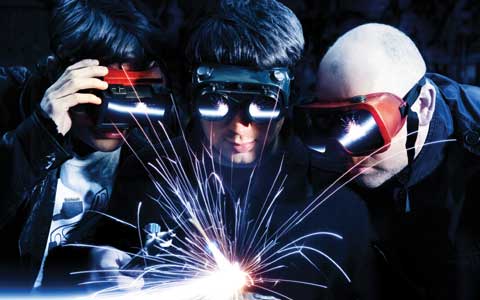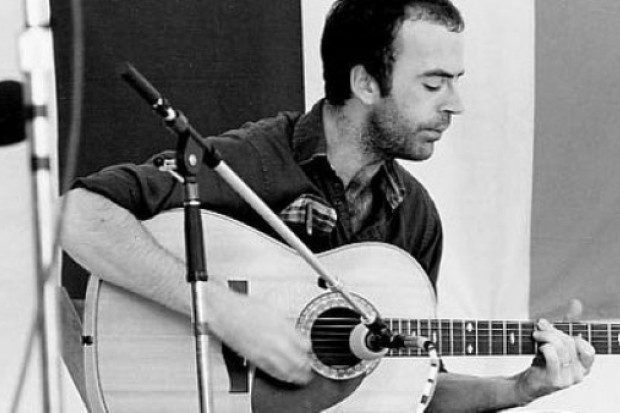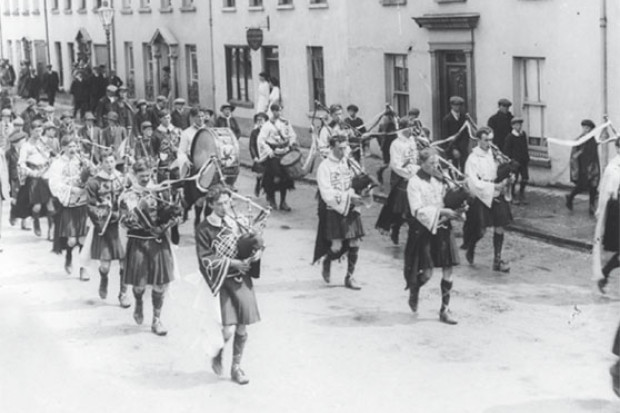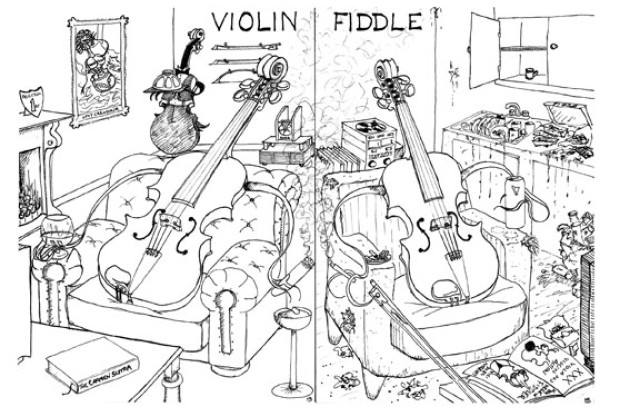
Lau
It was in this magazine in 2007 that the Irish traditional fiddle-player Caoimhín Ó Raghallaigh asked a simple question of traditional music: ‘What happens when we stop playing tunes?’ The implication being that there are other ways in which the traditional artist can express themselves beyond a rendition of a set of sixteen-bar melodies. Ó Raghallaigh has supplied his own answer to this, both stretching the aesthetics of traditional melodies and engaging in improvisation on fragments of tunes combined with electronics. That he is more or less stylistically alone in Ireland will surprise him as much as his listeners, but such is the pressure in the genre to conform.
In any case, Ireland’s position as a pioneer in producing new traditional music sounds has now been overtaken by musicians in England and Scotland: Eliza Carthy, John McCusker, Spiers and Boden, Bellowhead, Chris Wood, Spiro, Uiscedwr, and, pushing forth at the very cutting edge of it all, Lau.
The avant-garde musical developments of the twentieth century have formerly only crashed up against the fortress of tight structures that is traditional or folk music, leaving traces here and there but never truly shaping. Now, it seems, Lau are welcoming them in. Comprising of Kris Drever (guitar and vocals) and Aidan O’Rourke (fiddle), both from Scotland, and Martin Greene (piano accordion) from the south of England, Lau have created a space for anarchic improvisation; for a rich juxtaposing of time signatures; for strands of Reich and Glass (they share this interest with Spiro); for explorative harmony and free rhythm; for wandering narratives that stop and stare and ignite again, and have essentially ignored what everyone presumed traditional music audiences wanted to hear.
Arc Light, their third album, consists of arrangements of the songs of Drever and extended instrumental pieces that have tunes, or fragments of tunes, at their root. The opening track, ‘The Burrian’, is broken up by what, on first hearing, appear to be improvised phrases, but which reveal themselves as counter melodies to a buried tune on piano accordion. In fact, Lau’s free sound – particularly evident on ‘Horizontigo’ and ‘Salty Boys’ – is often as a result of responding creatively to a composed tune that is tucked away among the texture and which appears irregularly.
It is this compositional sense – the ability to build something extended from limited material – that is one of the band’s greatest strengths, and separates them out among the traditional music scene, though they are joined in this ability by Bellowhead. Consider the resonance of Arc Light’s cover image, which is of the three members soldering metal together, complete with goggles and blue flame, the bringing together of unyielding materials through an intense chemical process.
There is real depth and conviction to Drever’s voice and songwriting – it was the pressed beauty of ‘Winter Moon’ that first drew me to the band – but it his ability to not only field, but give pronunciation to, the complex weave of rhythms that O’Rourke and Greene endlessly spin out – ‘Frank and Flo’s’ for example – that makes the band so potent. In turn, O’Rourke’s fiddle maintains a terrifically precise relationship with Greene’s piano accordion.
Impressive as Arc Light is, by the very experimental nature of the band, a live Lau performance will dig even deeper than the controlled atmosphere of a studio recording. One performance from 2008 on YouTube, ‘Sea’, seems to present them at the very edge of their capabilities. In an extended composition in which O’Rourke switches between a pointed ostinato on fiddle while Greene and Drever work in different timings, to a frantic tune that leaps out at the listener, there are moments in ‘Sea’ that would have been unimaginable in English, Scottish, Welsh or Irish traditional music just a few years ago.
Published on 1 December 2009
Toner Quinn is Editor of the Journal of Music. His new book, What Ireland Can Teach the World About Music, is available here. Toner will be giving a lecture exploring some of the ideas in the book on Saturday 11 May 2024 at 3pm at Farmleigh House in Dublin. For booking, visit https://bit.ly/3x2yCL8.












